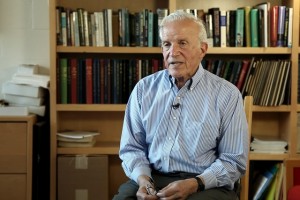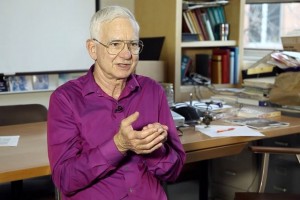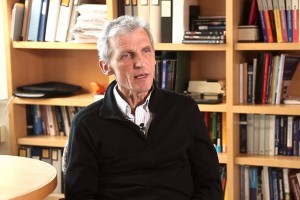Rydberg Atoms
MIT Prof. Daniel Kleppner on atom cavity oscillations, quantum entanglement and mechanical systems that are de...
What is quantum superposition and how can it be applied in practice? Why are quantum networks protected from information theft? Professor of Physics at Harvard University, Mikhail Lukin, speaks on applications of quantum mechanical devices.
While scientists still try to push the frontiers of understanding sub-atomic particles and uncover new underlying laws of physics, I would say that understanding matter at the atomic scale is mostly completed. So what scientists and engineers are now trying to do is take advantage of this knowledge and not only describe and understand the matter on the atomic scale, but also try to control, engineer and apply it to realize new devices and new applications.
The superposition principle is the basis for the new extremely active field of quantum science and engineering. Scientists are trying to implement these quantum superpositions on larger and larger scales, and not only to experiment with such systems, but also to use them for different applications. The applications that people are exploring form a very diverse set.
When a quantum computer performs its operation, in the process of its computation it creates states of matter which are extremely unique and unusual. One can take advantage of these kind of properties to basically design new types of quantum materials and quantum matter with properties which do not exist naturally. These states are extremely interesting and it’s actually extremely challenging to understand and quantify it, because they’re very unusual, they contain correlation, which are very difficult to measure using conventional techniques.

MIT Prof. Daniel Kleppner on atom cavity oscillations, quantum entanglement and mechanical systems that are de...

Physicist David Pritchard on the efficiency of cold atom experiments, Bose-Einstein condensation, and the use ...

Nobel Prize winning physicist Wolfgang Ketterle on laser and evaporative cooling, the candidates for Bose-Eins...